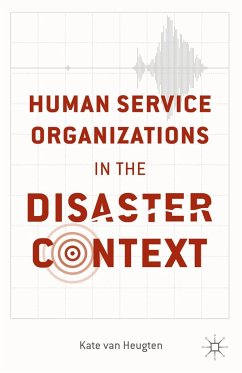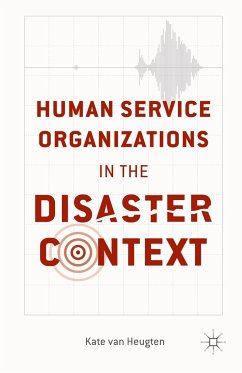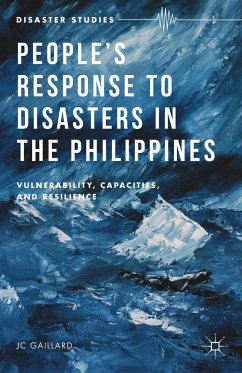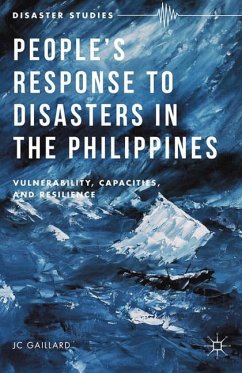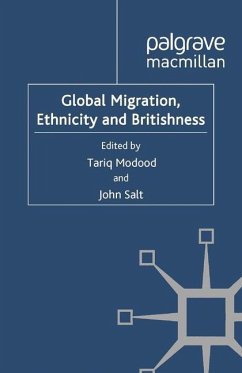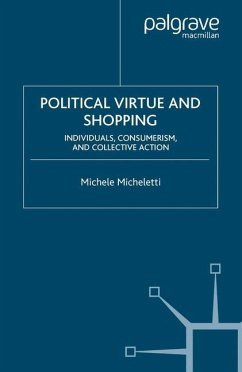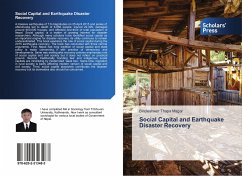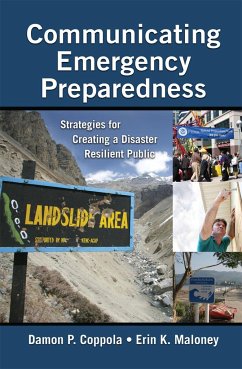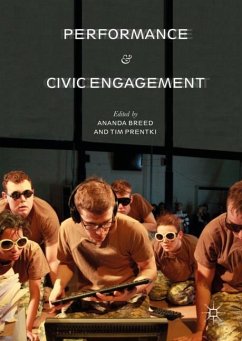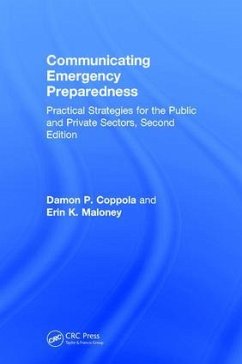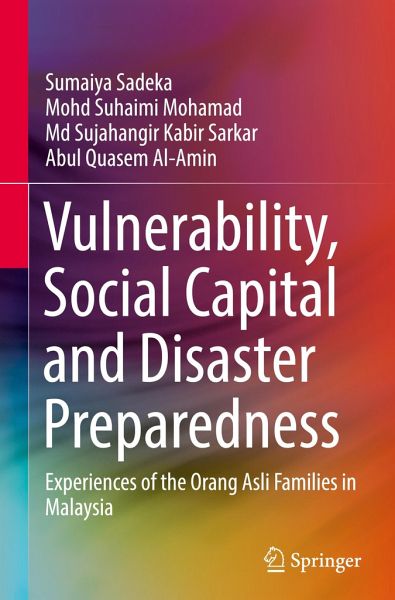
Vulnerability, Social Capital and Disaster Preparedness
Experiences of the Orang Asli Families in Malaysia
Versandkostenfrei!
Versandfertig in 6-10 Tagen
83,99 €
inkl. MwSt.
Weitere Ausgaben:

PAYBACK Punkte
42 °P sammeln!
This book addresses increasing concerns regarding the relationship between social capital and disaster, highlighting conceptual definitions related to social capital and disaster, family, community, vulnerability, disaster experience, and preparedness. Focusing on a contemporary case of disaster management in Malaysia, the authors explore and establish linkages between the level of social capital and disaster preparedness among the indigenous Orang Asli people. Taking the case of the Orang Asli families as a point of departure, the book presents solutions for mobilizing social capital for disa...
This book addresses increasing concerns regarding the relationship between social capital and disaster, highlighting conceptual definitions related to social capital and disaster, family, community, vulnerability, disaster experience, and preparedness. Focusing on a contemporary case of disaster management in Malaysia, the authors explore and establish linkages between the level of social capital and disaster preparedness among the indigenous Orang Asli people. Taking the case of the Orang Asli families as a point of departure, the book presents solutions for mobilizing social capital for disaster preparedness through multi-stakeholder involvement, promoting participation in awareness programs, ensuring indigenous people's access to resources, and proposing a prioritization of local values and culture in enabling proper planning and coordination for more disaster-resilient communities in Malaysia, Southeast Asia, and beyond. The book is broadly relevant to cases in similar economicsettings where indigenous people are lagging behind in disaster preparedness. An excellent resource for sociologists, this pioneering book collates various concepts and theories relating to social and ecological networks and systems, family resilience, and stress and coping mechanisms. It is relevant to researchers focused on disasters in developing countries, globally, particularly those focused on indigenous communities.





